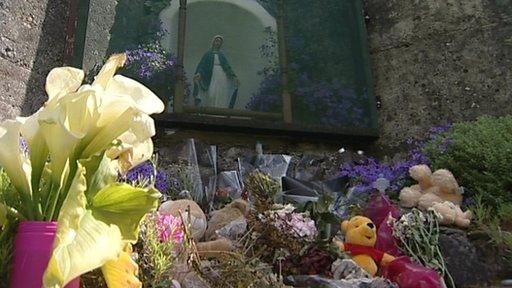Tuam babies: Remains of children to be exhumed from mass grave
- Published
Tuam babies excavation will be forensic, says minister
The remains of children buried in unmarked graves at a former mother and baby home in the Republic of Ireland are to be exhumed, identified and reburied.
The announcement was made by Minister for Children Katherine Zappone.
The site in Tuam, County Galway, will be excavated in a bid to recover the remains. Forensic tests will be carried out to identify each child before "respectful" reburials.
The Catholic-run institution housed unmarried mothers and babies from 1925 to 1961 and had high infant mortality.
There was an outcry last year when tests revealed "significant quantities" of human remains had been buried in "underground chambers" at the site.
Announcing the phased forensic excavation, Minister Zappone said: "I understand that this is a hugely important decision for all connected to the site in Tuam, most especially those who believe they may have a loved one buried there and those now living close to the site."
"I am committed to ensuring that all the children interred at this site can have a dignified and respectful burial."
The minister said operation would not be straightforward and said it presented "unprecedented technical and legal issues".
But she added: "It is only by taking the right actions now can we truly demonstrate our compassion and commitment to work towards justice, truth and healing for what happened in our past and, most especially, for those who were previously abandoned."
Missing records
The controversy emerged in 2014, when an amateur historian raised questions about the fate of almost 800 children who died at the home during its 36 years in operation.
Catherine Corless spent years trying to find out what happened to the remains of hundreds of children who died in the Tuam home.
Ms Corless established that although there were death certificates for 796 infants, no burial records existed, which raised fears of a mass grave.
It is thought that the children died of natural causes or malnutrition but the secretive, undignified manner of their burials caused widespread outrage in Ireland and beyond.
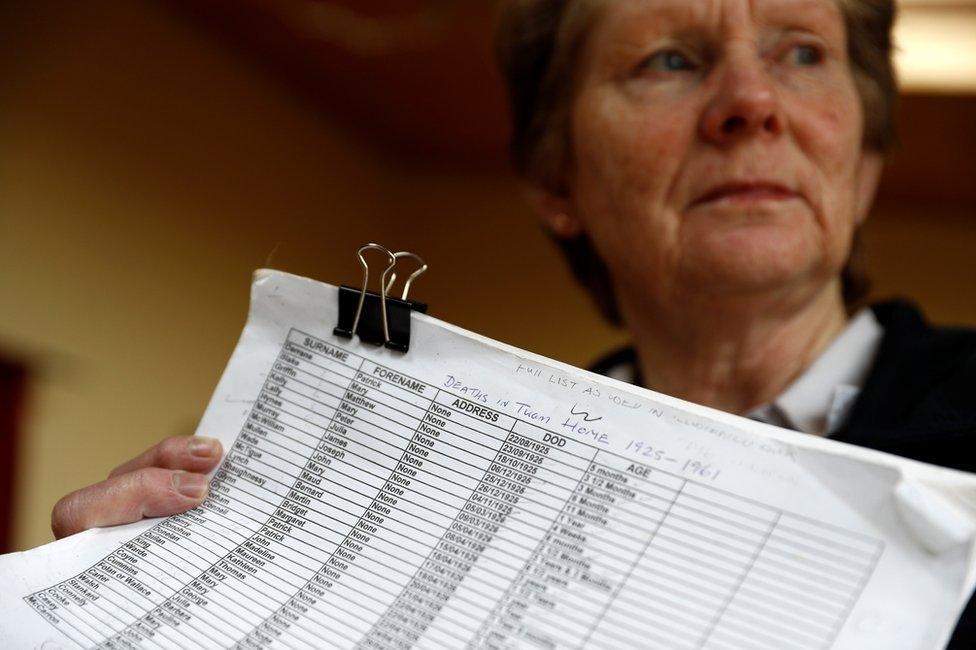
Catherine Corless collated hundreds of death certificates for the infants who died in the home
The Irish government set up a public inquiry in 2015 to investigate the Tuam burials and to conduct a wider examination of how mother and baby homes were run.
The inquiry - known as the Mother and Baby Homes Commission of Investigation - began test excavations at the site in October 2016.
In March 2017, the commission confirmed that "significant quantities" of human remains have been discovered in at least 17 underground chambers.
Test results showed the remains included premature babies and toddlers up to the age of three, who are believed to have died during the 1950s.
Journalist Alison O Reilly and author of a book about Tuam spoke to BBC Radio 4's PM programme
At that time sex outside marriage was considered taboo and many single mothers were disowned by their families and sent to institutions.
The Tuam home was one of several Irish institutions in which about 35,000 unmarried pregnant women are thought to have been sent.
Malnutrition and high infant mortality were common features of the homes and a child died nearly every two weeks at the Tuam home between the mid-1920s and 1960s.
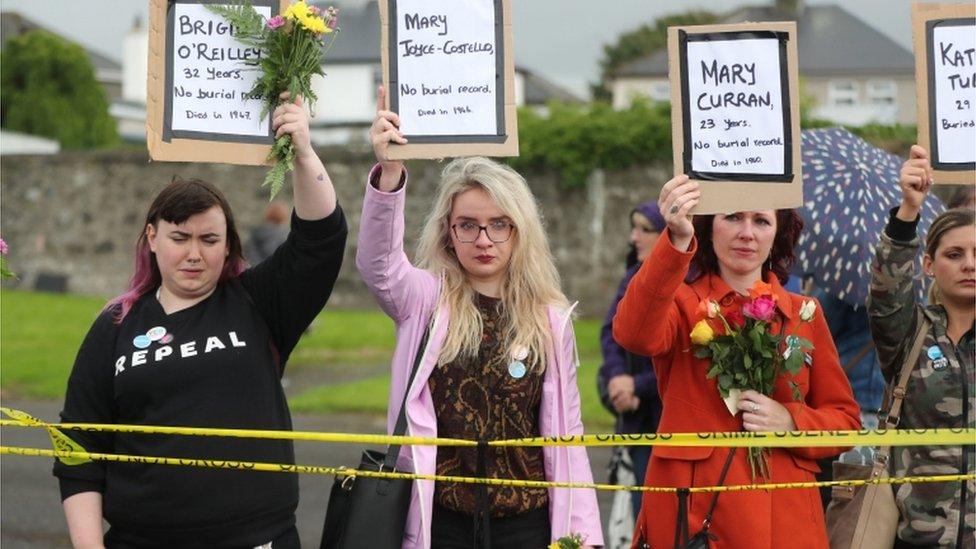
Protesters held up placards of the names of babies buried at Tuam during the Pope's visit to Ireland in August
The home, which has since been demolished, was run by congregation of Catholic nuns - the Sisters of Bon Secours.
Protests were held at the site in August, organised to coincide with Pope Francis' visit to Ireland.
Minister Zappone also raised the issue during a meeting with the pontiff in Dubin.
"I hope the Church will make reparation for its part in this shameful chapter," she told the Pope.
- Published27 August 2018
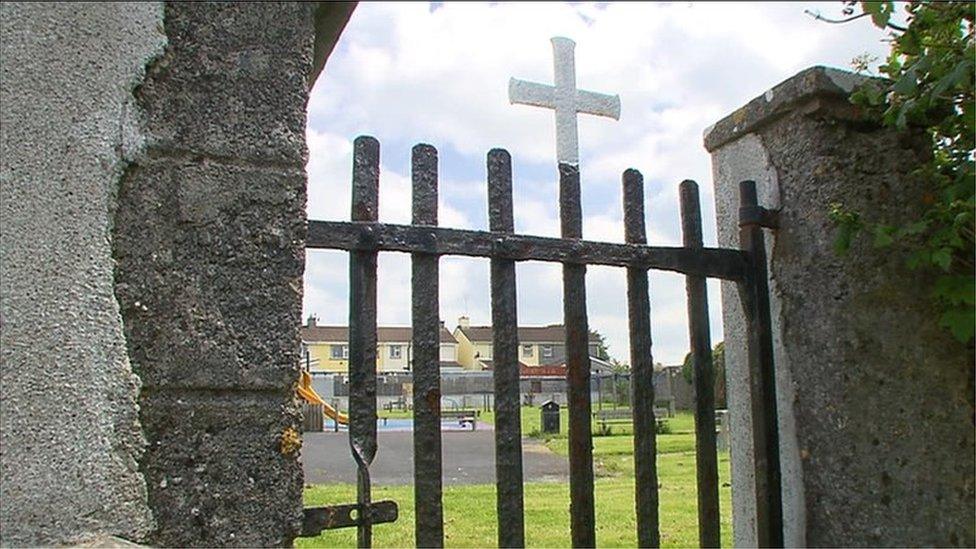
- Published4 March 2017

- Published9 October 2015
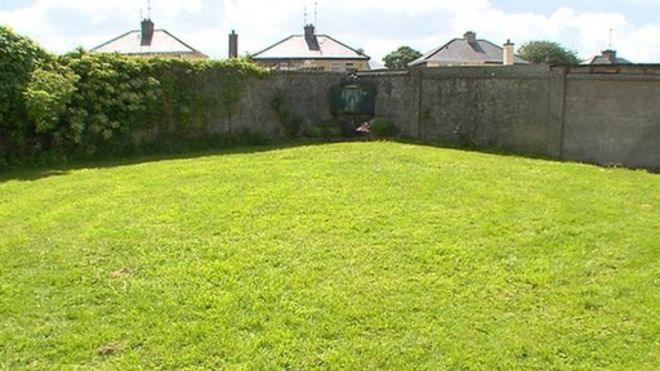
- Published23 June 2014
